30 Apr 2021 | China, Opinion, Ruth's blog, Uncategorized
[vc_row][vc_column][vc_column_text]
“When governments collaborate with totalitarian regimes committing atrocities, they grow richer, they get faster technology. But when they slowly discover that freedom of speech is growing smaller then this wealth, this technology, is meaningless”
Ma Jian
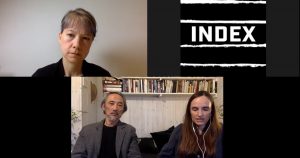 Even in the middle of a global pandemic there has been one country that has broken through the news cycle – China. The acts of the Chinese government in recent years are a true cause for global concern. From Hong Kong to Tibet, from Xinjiang to Inner Mongolia we are all witnessing the actions of an authoritarian regime, one that seemingly thinks little of human rights or of its citizens. To the outside observer the Chinese government seems more interested in quashing dissent, re-writing history and bending the rest of the world to fit its narrative, than it does on embracing core human values.
Even in the middle of a global pandemic there has been one country that has broken through the news cycle – China. The acts of the Chinese government in recent years are a true cause for global concern. From Hong Kong to Tibet, from Xinjiang to Inner Mongolia we are all witnessing the actions of an authoritarian regime, one that seemingly thinks little of human rights or of its citizens. To the outside observer the Chinese government seems more interested in quashing dissent, re-writing history and bending the rest of the world to fit its narrative, than it does on embracing core human values.
Index has written extensively over many years about the impact of this within China, the effect on media freedom, freedom of expression and freedom online. We’ve highlighted the work of incredibly brave dissidents demanding democracy in Hong Kong. We’ve featured the words of Uighur poets, the writings and musings of Ai Weiwei and the amazing work of organisations like GreatFire who every day challenge the firewall that the Chinese government has erected, restricting their citizens access to global information.
But the Chinese government is more than an authoritarian government. It is a government built on the ideology and infrastructure of the Chinese Communist Party (CCP). This year marks the centenary of the CCP and in the latest edition of Index on Censorship magazine we’ve focused on the impact of the CCP both at home and abroad. Of the many features in our special report, what is most touching, at least for me, are the beautiful words of Ma Jian, the acclaimed writer in exile. Ma Jian reflects on the impact of the CCP on his life and why he has to live in exile.
When Index on Censorship was launched, one of our founders, Stephen Spender, was adamant that it was going to be more than a frustration sheet, we were going to be a home for amazing writing that inspired and moved us. Ma Jian’s words did exactly that, which he did once again when he spoke at the launch of the magazine on Wednesday.
His personal testimony will haunt me, his words were beautiful and reminded me once again of the vital importance of our work. Please take a minute to read Ma Jian in his own words, he will inspire you.
And to enter the bank holiday on a positive note, a few more words of hope from Ma Jian.
“The CCP will one day fall because it is not in tune with the values of humanity.”
[/vc_column_text][/vc_column][/vc_row][vc_row][vc_column][three_column_post title=”You may also want to read” category_id=”41669″][/vc_column][/vc_row]
28 Apr 2021 | Africa, Burma, China, Hong Kong, Magazine, Magazine Contents, Slapps, United States, Volume 50.01 Spring 2021, Volume 50.01 Spring 2021 extras
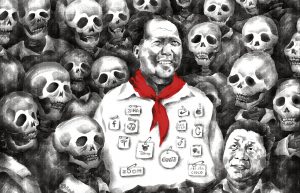
Illustration: Badiucao
Index looks back on 100 years of the Chinese Communist Party and how their censorship laws continue to shape the lives of people around the world and threaten their right to free speech. Inside this edition are articles by exiled writer Ma Jian and an interview with Facebook’s vice-president for global affairs, former UK deputy Prime minister Nick Clegg; as well as an exclusive short story from acclaimed writer Shalom Auslander.
Acting editor Martin Bright said: “I am delighted to introduce the latest edition of Index which marks the 100th anniversary of the Chinese Communist Party.”
“This year also marks the 50th anniversary of the magazine and I am proud that we are continuing the founders’ legacy of opposition to totalitarianism.”
“In this Spring edition of Index we are particularly pleased to publish an exclusive essay by the celebrated Chinese writer Ma Jian, who suggests that an alternative tradition of tolerance and freedom is still possible.”
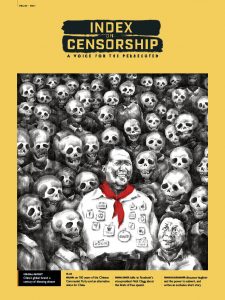 A century of silencing dissent by Martin Bright: We look at 100 years of the Chinese Communist Party and the methods of control that it has adapted to stifle free expression and spread its ideas throughout the world
A century of silencing dissent by Martin Bright: We look at 100 years of the Chinese Communist Party and the methods of control that it has adapted to stifle free expression and spread its ideas throughout the world
The Index: Free expression round the world today: the inspiring voices, the people who have been imprisoned and the trends, legislation and technology which are causing concern
Fighting back against the menace of Slapps by Jessica Ní Mhainín: Governments continue to threaten journalists with vexatious law suits to stop critical reporting
Friendless Facebook by Sarah Sands: An interview with Facebook vice-president Nick Clegg about being a British liberal at the heart of the US tech giant
Standing up to a global giant by Steven Donziger: A lawyer who has gone head to head with the oil industry since 1993 at great personal cost tells his story
Fear and loathing in Belarus by Yahuen Merkis and Larysa Shchryakova: The crackdown on journalism has continued with arrests. Read the testimony of two reporters
Killed by the truth by Bilal Ahmad Pandow: Babar Qadri was one of Kashmir’s most strident voices, until he was gunned down in his garden
Cartoon by Ben Jennings: Arguments about the removal of statues cause a stir
The martial art of free speech by Ari Deller and Laura Janner-Klausner: The question of Cancel Culture continues to rage. Is it really a problem?
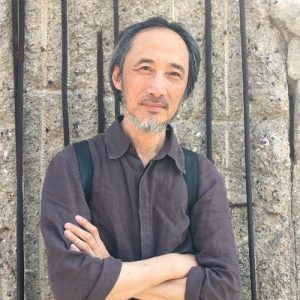
Ma Jian
Burning through censorship: Censorship-busting online organisation GreatFire celebrates its 10th anniversary
The party is your idol by Tianyu M. Fang: China’s propaganda is adapting to target young people
Past imperfect by Rachael Jolley: Four historians explain how the CCP shaped China and ask if globalisation will be its undoing
Turkey changes its tune by Kaya Genç: Uighur refugees living in Turkey find themselves victims of a change in foreign policy
The human face and the boot by Ma Jian: The acclaimed writer-in-exile reflects on 100 years of the CCP and its legacy of bloodshed
A moral hazard by Sally Gimson: Universities around the world and the CCP’s challenges to academic freedom
Director’s cuts by Chris Yeung: Hong Kong broadcaster RTHK has been squeezed by China’s tightening control
Beijing buys Africa’s silence by Issa Sikiti da Silva: Africa’s rich natural resources are being hoovered up by China
A new world order by Natasha Joseph: Journalist Azad Essa found when he wrote about China in Africa, his writing was silenced
A most unlikely ally by Stefan Pozzebon: Paraguay has long been an ally of Taiwan, but it’s paying an economic price
China’s artful dissident: A profile of our cover artist: the exiled cartoonist Badiucao.
Lies, damned lies and fake news by Nick Anstead: Fake news is rife, rampant and harmful. And we can only counter it by making sure that the truth is heard
Censorship? Hardly by Clive Priddle: Even the most controversial book usually finds a publisher after it has been turned down
A voice for the persecuted by Ruth Smeeth: As Index celebrates its 50 year anniversary, we note why free speech is still important

Collective ©ALEXANDER NANAU PRODUCTION
Don’t joke about Jesus by Shalom Auslander: An exclusive short story based on a joke by the acclaimed author of Mother for Dinner
Poet who haunts Ukraine by Steve Komarnyckyj: Vasyl Stus, the writer who remains a Ukrainian hero, 35 years after perishing in a Soviet gulag
The freedom of exile by Khaled Alesmael, Leah Cross: A young refugee Syrian writer on the love between Arab men
Forbidden love songs by Benjamin Lynch: Iran’s underground pop music scene upsets the regime
Reviews: Saudi Arabia’s murder of Jamal Khashoggi, USA Gymnastics and healthcare in Romania: we review three new documentaries
War of the airwaves by Ian Burrell: The Chinese government faces difficulties with its propaganda network CGTN
1 Apr 2021 | China, Hong Kong, Media Freedom, Opinion, Ruth's blog, Taiwan
[vc_row][vc_column][vc_column_text]
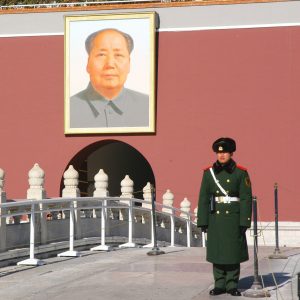
Photo: PublicDomainPictures
The awful actions of the Chinese government over the last month have dominated our news agenda. The collective actions of the government and their outliers have been designed to silence dissent, to intimidate and to bully.
They have repeatedly attacked core democratic principles both at home and abroad, undermining fair political participation. They’ve arrested democracy activists, changed the law to restrict electoral access to the Hong Kong Legislative Council to sanctioned ‘patriots’ otherwise known as the allies and friends of the Government of China.
The ruling Chinese Communist Party (CCP) has also sanctioned British parliamentarians and activists for daring to speak out about the acts of genocide, happening as I type, in Xinjiang province against the Uighur community. The CCP chose not to target members of the British Government nor key businesses with sanctions.
Instead, it sent a political message and targeted backbench Conservative MPs, two think-tanks and an academic, those who had been most vocal in exposing the actions of the CCP in both Xinjiang and Inner Mongolia. This was a move intended to silence criticism not impose economic sanction, a clumsy and ineffectual effort to restrict free speech outside China’s borders.
This week, these aggressive actions by the CCP culminated with yet another attack on media freedom when the BBC’s lead China correspondent, John Sudworth, was forced to relocate with his family from Beijing to Taiwan after a campaign of state-sanctioned threats and intimidation. Sudworth and his wife, a fellow journalist for the Irish RTE, Yvonne Murray, were faced with no other option than to leave after months of personal attacks in Chinese state media and by Chinese government officials. They will both continue to report on events in China from Taiwan.
The harassment of international journalists in China (and now in Hong Kong) is becoming normalised, with dozens of journalists having to leave in recent months; threats of visas being withheld are now commonplace. This is simply unacceptable.
China seeks to be a loud voice on the global stage – they need to live up to their commitments under the Universal Declaration of Human Rights. They need to remember they are signatories to Article 19 and that media freedom and free expression are protected rights.
Index stands in solidarity with John and Yvonne.[/vc_column_text][/vc_column][/vc_row][vc_row][vc_column][three_column_post title=”You may also want to read” category_id=”41669″][/vc_column][/vc_row]
7 Jan 2021 | China, Hong Kong, News
[vc_row][vc_column][vc_single_image image=”115971″ img_size=”full” add_caption=”yes”][/vc_column][/vc_row][vc_row][vc_column][vc_column_text]Two countries, one system.
That, effectively, is the policy in Hong Kong and China after more than 50 pro-democracy activists were arrested yesterday morning under the National Security Law for their part in the pro-democracy primaries last July.
The primaries were held to identify pro-democracy candidates for Hong Kong’s Legislative Council (LegCo) elections which were due in September 2020.
At the time, HKSAR chief executive Carrie Lam said, “If this so-called primary election’s purpose is to achieve the ultimate goal of delivering what they called ’35+’ [lawmakers], with the objective of objecting or resisting every policy initiative of the HKSAR government, it may fall into the category of subverting the state power – one of the four types of offences under the national security law (NSL).”
Lam subsequently postponed the 2020 LegCo elections, citing a resurgence in Covid-19 and claiming support for the move from Beijing.
Lam’s threat has now materialised, with many of the candidates and organisers of the primaries now arrested for breaking the NSL.
Several of the candidates for the primaries had already fled to exile, including Nathan Law, Ted Hui and Sunny Cheung.
The three issued a joint statement saying, “This has yet again proven how the National Security Legislation tramples upon One Country, Two Systems. The indiscriminate arrest concerns political figures from all sides of the spectrum. The unprecedented scale indicates how the Communist government had decided to purge the democratic camp, silencing all dissent.”
The three said that the ambiguity of the law now threatens all 600,000 Hongkongers who cast their votes in the primaries.
Benedict Rogers, CEO of Hong Kong Watch believes the arrests mean no one in Hong Kong is safe anymore.
“The simple act of organising a primary election for the purposes of selecting candidates for the pro-democracy camp ahead of Hong Kong’s planned Legislative Council elections is now deemed an act of subversion under the draconian national security law, carrying with it the potential for years in prison,” he told Index.
“Potentially any expression of desire for democracy or dissent from the Chinese or Hong Kong governments could be a criminal act. The national security law and its vaguely defined crimes of subversion and collusion with foreign political forces, imposed on Hong Kong last July, already threatened freedom of expression in Hong Kong, and now the arrests we have seen in recent months and especially these mass arrests prove that this draconian law has destroyed freedom of expression in Hong Kong.”
The UN clearly agrees with this view that everyone now needs to be waiting for the knock at the door.
A spokesperson for the UN Human Rights Office said, “These latest arrests indicate that – as had been feared – the offence of subversion under the National Security Law is indeed being used to detain individuals for exercising legitimate rights to participate in political and public life.”
The situation all seems a very long way from what is laid out in the Sino-British Joint Declaration which promised to maintain the status quo until 2047.
Lord Patten, who was governor of Hong Kong at the time of the handover, told Sky News that the arrest of pro-democracy activists was a “further turning of the screw”.
He said, “This is a further attempt to destroy the freedoms of a city that has thrived under the rule of law. The people who have been arrested are not radicals, they have not been guilt of violence, they are lawyers, academics, social workers. [These are the] people who organised a vote to choose the best candidates for the elections which were then postponed, arguably because of Covid.”
UK foreign secretary Dominic Raab said that the mass arrest was “a grievous attack on Hong Kong’s rights and freedoms as protected under the Joint Declaration” and that “the Hong Kong and Chinese authorities deliberately misled the world about the true purpose of the National Security Law”.
Tom Tugendhat MP , chairman of the Foreign Affairs Committee, called it a “tragedy”, saying, “Eroding free speech and detaining democrats is an act of violence against the people of Hong Kong and the economy they have built.”
Chinese exiled cartoonist Badiucao expressed his sentiments over the arrests with his latest work.
The UN has also urged the authorities to guarantee the right to freedom of expression in the context of ongoing investigations, including by allowing journalists and news organisations to fully and freely exercise their legitimate functions.
The authorities seem unlikely to comply. Various Hong Kong publications were served with a search warrant asking for the contact information of primary election candidates. This led Tom Grundy, co-founder of Hong Kong Free Press who spoke on our podcast just before Christmas, to say, “Hong Kong newsrooms are not phonebooks for the police to call upon as they wish.”
Whether it was coincidence that the arrests took place on a day when the world’s attention was distracted towards the USA or not – which is not beyond the Chinese Communist Party – many have highlighted the irony.
Journalist Tony Lin spoke for many when he tweeted, “So many nuances need to be addressed, but at core what many ppl fought for in Hong Kong was EXACTLY what DC extremists trying to dismantle in the US: the right to vote.”
In their statement, Nathan Law, Ted Hui and Sunny Cheung express what many are now feeling.
“Foreign governments must reconsider whether Hong Kong should be treated differently from China,” they added. “Leaders of the free world must recognise the ambition and the despotic nature of the Chinese Communist Party.”
[/vc_column_text][/vc_column][/vc_row][vc_row][vc_column][three_column_post title=”You may also want to read” category_id=”40980″][/vc_column][/vc_row]
 Even in the middle of a global pandemic there has been one country that has broken through the news cycle – China. The acts of the Chinese government in recent years are a true cause for global concern. From Hong Kong to Tibet, from Xinjiang to Inner Mongolia we are all witnessing the actions of an authoritarian regime, one that seemingly thinks little of human rights or of its citizens. To the outside observer the Chinese government seems more interested in quashing dissent, re-writing history and bending the rest of the world to fit its narrative, than it does on embracing core human values.
Even in the middle of a global pandemic there has been one country that has broken through the news cycle – China. The acts of the Chinese government in recent years are a true cause for global concern. From Hong Kong to Tibet, from Xinjiang to Inner Mongolia we are all witnessing the actions of an authoritarian regime, one that seemingly thinks little of human rights or of its citizens. To the outside observer the Chinese government seems more interested in quashing dissent, re-writing history and bending the rest of the world to fit its narrative, than it does on embracing core human values.




